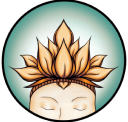Touch and Smell - The Forgotten Senses

Touch and Smell - The Forgotten Senses
This is a story about Claire.
Claire is a customer, a friend, and an aromatherapist. Before having children, she used to volunteer at a local hospice. One day she was treating a man who was in the last few weeks of his life. She was giving him a gentle hand massage because he was too weak for anything else. As she was finishing, his eyes filled up with tears and he said, 'Nobody has touched me like that since my wife died.' And then he added, 'And that was 30 years ago'.
The reason for telling you this is that I am going to talk about the five senses, and the important role that each of them can play in bringing balance to life.
Some years ago I was at an aromatherapy conference at Warwick University. One of the speakers (I wish I could remember his name, so if you were there and know who I am talking about please let me know because I would like to acknowledge him) pointed out that in traditional cultures each of the five senses was considered more or less equal. The Romans were famous for their baths, massage and oils, Cleopatra's boat apparently smelled of rose petals, and The Bible tells many stories of Jesus annointing his followers' heads and their feet. Earlier than that, the ancient texts of Ayurveda prescribe 'abhyanga' (massage with herbalised oil) in many treatments, and also as a daily preventive self-practice.
Yet somewhere along the line this all changed. Maybe it was at the time of The Renaissance with its emphasis on fine art and beautiful music? Or perhaps it came with the advent of the dispassionate intellectual scientific approach to understanding Nature? But somehow it came about that two of the senses — hearing and vision — came to be seen as the 'higher senses', while touch, taste and smell were relegated to the second division, and became the 'lower' animalistic senses.
During a typical day in modern urban Western life, we are overwhelmed by sensory stimulation. But dwell on this for a moment. You will see that it is nearly all audio-visual: computer screens, TV, radio, telephones, cinema, smartphones, etc. (What can the internet not do? Touch, taste and smell!) Our minds are crowded with thoughts and things we have to do. Unless we take time to 're-connect' with the Self, walk in Nature and take time to 'smell the roses' — unless we are attentive to our earthier needs and the senses of touch, taste and smell — we run the risk of losing balance and our lives become sad.
When I first qualified as an aromatherapist, my brother-in-law, a general practitioner in Sheffield, commented: 'If all my patients had an aromatherapy massage once a month, I'd probably be half as busy as I am now.' It was a great statement! How can we encourage decision-makers in our health services to see the significance behind this simple and important truth?
Modern medicine has many admirable qualities but the 'human touch' can be sadly lacking. Some years ago a paper was published showing that premature babies gained weight more quickly if they were exposed to tactile stimulation (i.e. they got regular cuddles) when they were in the incubator. The conclusion was: 'Tactile stimulation is cost-effective'!
There are many ways that we can enhance our well-being with essential oils. The so-called 'British Approach' was pioneered by that well-known 'British' lady Madame Maury (she was born and brought up in Austria, and married to a Frenchman, but had a practice in London). This approach centres around massage with aromatic oils diluted in a vegetable oil, and so combines the two senses of touch and smell in a wonderful synergy of sensory delight.
Traditional systems of healthcare such as Ayurveda and TCM (Traditional Chinese Medicine) put most of the emphasis on prevention. They see the emergence of a disease as the result of the accumulation of imbalances over time, so their main focus is to deal with the imbalances before they become symptoms. Modern healthcare could learn a lot from this, but it requires time and it involves taking a step back to see the bigger picture.
So make time every day to balance yourself. Give yourself a break from all the audio-visual stimulation, and enjoy some touch, taste and smell. Take time with your essential oils. They may have lessons to teach you! Go for an aromatherapy massage by all means, but if that's difficult then do your own daily 'treatment'. Take a couple of drops of a favourite oil or blend, mix it with jojoba and pass it smoothly over the body after a morning shower. Smell the oils, enjoy the aromas, connect with the earthy lessons that they teach you, and allow yourself to dwell for a precious moment on the feeling that is left afterwards.
Jonathan Hinde
P.S. By the way I never knock modern medicine. If I walk out onto Cherry Hinton Road and get hit by a No. 2 Bus, I don't really want to see Claire (or any other aromatherapist) coming round the corner. I'd much rather it was an orthopaedic surgeon from the local hospital. Modern medicine is brilliant at what it does. We just have to remember that what it does well is mainly acute medicine. But this is perhaps a story for another time..
An article written by Jonathan Hinde - June 2023 - Oshadhi Essential Oils. Permission given to share.
